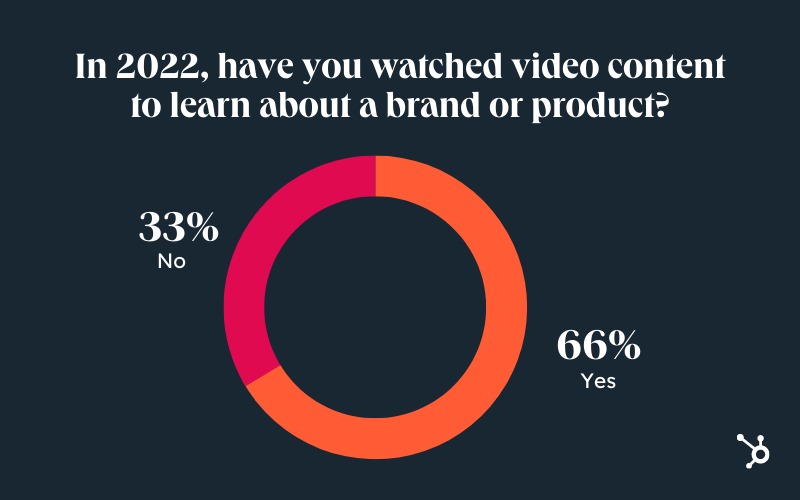Organizing your video libraries can play a significant role in creating an effective and searchable…

Unlocking Global Markets: Why Reliable Language Services are Key to Successful Video Localization
Reliable Language Services are Key to Successful Video Localization
Reliable language services are imperative to successful video localization. In today’s digital world, video marketing has become integral to any marketing strategy. According to a recent report by Wyzowl, 86% of businesses use video as a marketing tool, and 93% of marketers believe that video is an integral part of their marketing strategy. How marketers reach audiences has vastly changed for many businesses across the globe.
The reorientation required since 2020 is unprecedented, forcing us all out of our comfort zones in every aspect of life. The COVID-19 pandemic has significantly impacted video usage globally. With many people staying at home due to lockdowns and social distancing measures, video consumption has soared across different platforms and devices. According to a report by WARC, the global average time spent watching online videos increased by 16% in 2020 compared to the previous year.
With the rise of remote work and virtual events, video conferencing platforms like Zoom, Microsoft Teams, and Google Meet have seen explosive growth. Zoom, for instance, reported a 355% increase in revenue in the fiscal year 2021. Social media platforms like TikTok, YouTube, and Instagram have also experienced a surge in video usage during the pandemic. TikTok, in particular, saw its user base grow by over 75 million in the first quarter of 2020 alone.
Moreover, video advertising has become increasingly popular as brands look for innovative ways to reach consumers in a time of physical distancing. According to a report by WARC, global video ad spend is expected to increase by 12.5% in 2021. As the pandemic continues to shape the way people live and work, it is likely that video usage will remain a significant part of our daily lives in the years to come.
From travel, sports, entertainment, fitness, education, small business, and healthcare to technology; we all found ourselves pivoting toward the future in record time. Within this change, there is a unifying growth trend across industries, borders, and demographics– the exponential increase in video consumption. And this rise has undoubtedly played a significant role in the growth of the global marketplace. With video platforms allowing people to connect and share information across borders and time zones, businesses can now reach audiences all over the world with ease.
According to a study by Google, 68% of YouTube users watch content in a language other than their own.
Video has also facilitated cross-cultural communication, allowing people to share their experiences and perspectives in ways that were not possible before. Additionally, video has enabled businesses to showcase their products and services to potential customers, breaking down physical barriers and expanding their reach to new markets. Overall, the rise of video has ushered in a new era of global communication and commerce, transforming the way we interact with each other and do business.
With the rise of global markets, localizing videos to cater to audiences that speak different languages is essential. Corporations have had to adapt localization strategies into and across their organizations. This article will explore why marketers need reliable language services for their video localization efforts.
The Need for Video Localization
In a globalized world, companies must recognize the importance of localization. Video localization helps companies connect with their target audience by creating content that resonates with them. According to a report by CSA Research, 75% of consumers prefer to buy products in their native language. And of the marketers surveyed for Unbabel’s 2022 report, 84% say that localization has positively impacted revenue growth. Areas positively affected by localization include brand recognition (86%), customer acquisition (85%), customer retention (79%), and competitive differentiation (77%). Consumers now expect websites, blogs, emails, paid ads (and more) to be in their language. According to CSA Research, 76% of online shoppers prefer to buy products with information in their native language, and 40% will never buy from websites in other languages.
It’s clear that marketers need reliable language translation services to power their video localization efforts. Many marketers’ first line of defense is turning to Machine Translation (MT), but this is potentially highly problematic. Unbabel findings show an uptick in the use of Machine Translation, with 39% of respondents now using MT as part of their localization approach. The growth of machine translation to meet the needs of localization strategies has necessitated post-editing. Machine transcripts are just not reliable and go-to-market ready. Enter ‘humans-in-the-loop’. The idea that humans capture the most nuanced aspect of language, culture, tone, and inflection is nothing new and critical when communicating in new markets. Localization strategies require accurate content and assures cultural nuances and preferences are included in the content.
A simplified example of nuanced cultural aspects is colors. Colors have different meanings in different cultures; the color red is associated with danger in some cultures yet it is associated with love in other cultures or represents good luck in others. Localization is imperative for marketers because it allows them to tailor their message and content to their target audience’s specific cultural, linguistic, and social norms, making it more relatable and compelling. This can increase engagement, conversions, and brand loyalty, ultimately driving business success.

Reliable Language Services are Key to Successful Video Localization
When it comes to video localization, reliable language services are essential for a few reasons. Accurate translations and transcriptions ensure that the localized video is accessible and understandable to the target audience, which is critical for effective communication.
Additionally, reliable language services help maintain the integrity of the message, ensuring that the original video’s tone, style, and nuances are preserved in the localized version. This is especially important for branding and marketing videos where consistency in messaging is crucial. Moreover, reliable language can prevent costly mistakes, such as cultural misinterpretations or offensive content, which could damage the brand’s reputation.
Ultimately, reliable language services are key to successful video localization, ensuring that the localized video effectively reaches and engages the intended audience while maintaining the quality and integrity of the original content. Marketers must choose reliable language services that meet their video localization needs.
Why Marketers Need Reliable Language Services for Video Localization
- Accurate Translation: Reliable language services ensure the content is accurately translated without errors or omissions. Proper translation is crucial for maintaining the brand’s credibility and ensuring the content resonates with the target audience.
- Cultural Adaptation: Localization is not just about language translation; it also involves adapting the content to suit the cultural preferences of the target audience. Cultural adaptation helps ensure the content is relevant and resonates with the target audiences
- Quality Assurance: A reliable provider has a robust process to ensure content is error-free and meets the client’s requirements. Quality assurance involves reviewing the content for accuracy, completeness, and consistency.
- Faster Turnaround Time: Time is essential in our competitive global markets, and marketers must ensure content is delivered on time, without delay. A quicker turnaround time is vital to meeting tight deadlines.
Conclusion
Video localization is essential for connecting with audiences in different parts of the world. Localization is not just about language translation; it involves adapting the content to suit the cultural preferences of the target audience. Reliable language services are essential for accurately translated content.
Poor and inaccurate video translations can adversely impact brand image, resulting in lost revenue and damaged credibility. Therefore, choosing a reliable language partner to meet your video localization needs is essential. Seek a partner with a robust quality assurance process to ensure the content is error-free and meets the client’s requirements. By doing so, you can create content that resonates with your target audience, increasing engagement and revenue. Global reliance on video has become a primary touch point for building relationships.
cielo24 provides robust accessibility video localization solutions

 Contact cielo24 for additional information about Video localization services, contact us here.
Contact cielo24 for additional information about Video localization services, contact us here.
According to a survey by Verizon Media, 80% of consumers are more likely to watch an entire video when captions are available. Enjoy a complimentary trial account.
International organizations enjoy local hosting, a wide range of foreign languages, and other services, learn more.
Looking for Audio Description? Get started with WCAG 2.1 AA compliant Audio Description product.
cielo24’s new Audio Description solution brings an improved video experience to people with low vision, vision impairment, and blindness. Give it a try now >>



